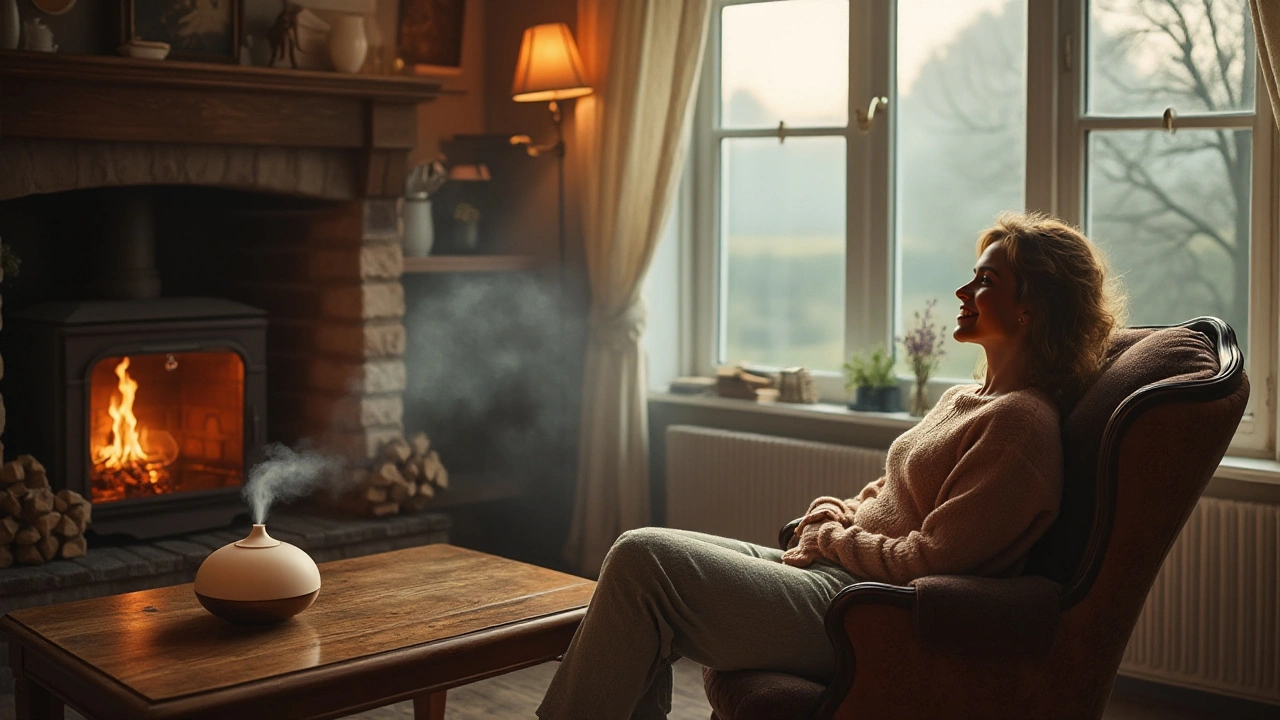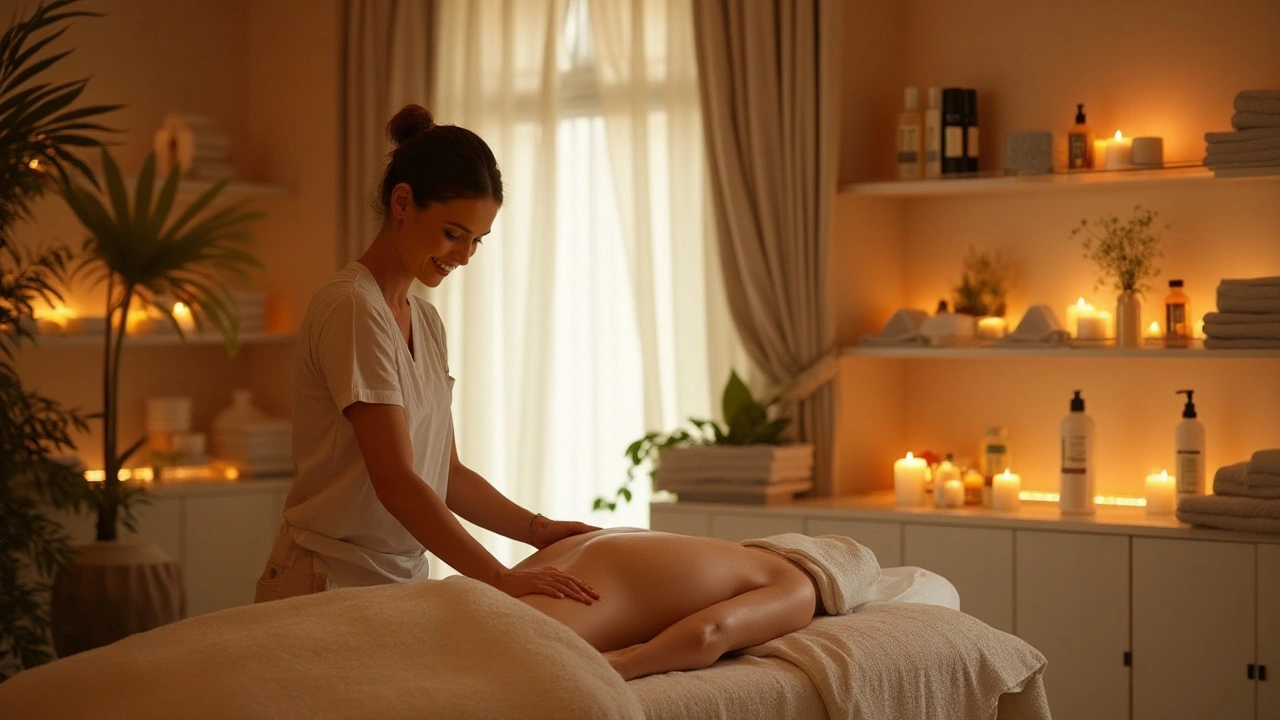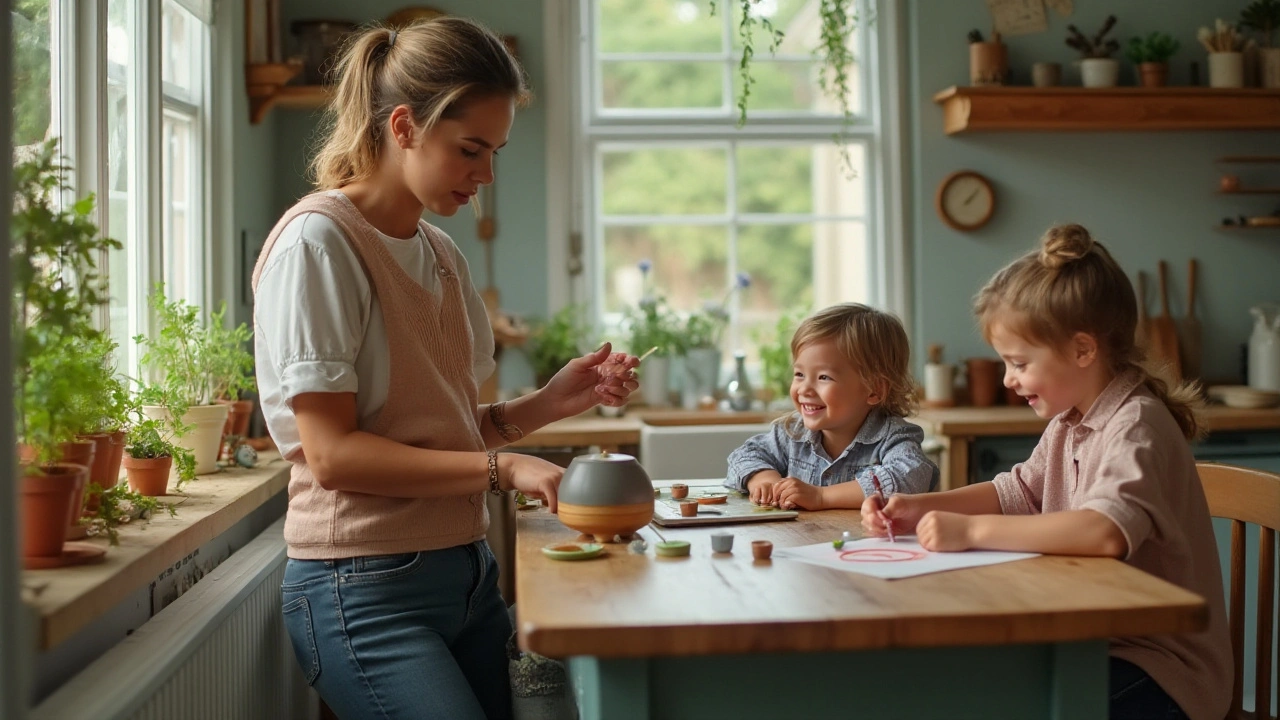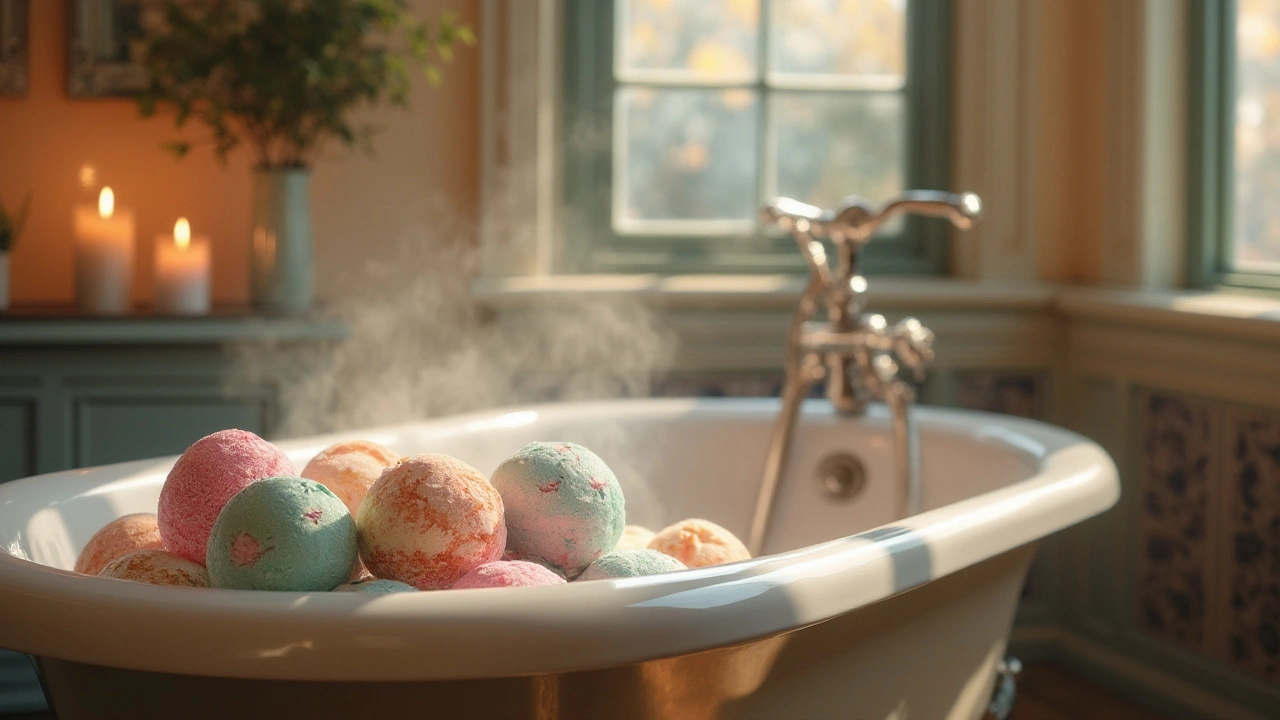
Aromatherapy might seem like a modern wellness trend, but its roots dig deep into ancient healing practices. At its essence, it uses the fragrant oils extracted from plants to soothe and support the body's natural healing processes. Many cultures have turned to aromatic essentials for medicinal and spiritual purposes over centuries.
Today, aromatherapy continues to captivate those seeking a more natural path to well-being. Essential oils, derived from flowers, leaves, and roots, offer a spectrum of biological benefits beyond just smelling delightful. From lavender's calming touch to peppermint's invigorating zest, these oils bring unique properties catering to different needs. As I explore more on how to embed aromatherapy into everyday life, I'll also guide you on selecting oils best suited for your personal wellness journey.
- Understanding Aromatherapy Basics
- Health Benefits of Aromatherapy
- Incorporating Aromatherapy into Daily Life
- Choosing the Right Essential Oils
Understanding Aromatherapy Basics
At its heart, aromatherapy is about harnessing the potent fragrances and healing properties of plant-derived essential oils. These oils, which capture the essence of a plant's fragrance, are known to influence the body's biochemistry and emotional wellbeing. Through inhalation or topical application, aromatherapy aims to enhance both mental and physical health. This practice is not new. In fact, its origins trace back thousands of years to ancient civilizations like the Egyptians, Greeks, and Chinese, who were the true pioneers in using aromatic herbs and oils for medical and spiritual purposes.
Let’s delve deeper into the mechanics of how aromatherapy works. When an aroma is inhaled, it travels through the olfactory system, eventually reaching the brain's limbic system. This part of the brain is profoundly linked to emotions and memory, which explains why specific scents can instantly evoke memories or alter our mood. For topical applications, the tiny molecules in essential oils permeate the skin, allowing them to enter the bloodstream and circulate throughout the body. This dual approach—via inhalation or skin absorption—provides a pathway for the oils to exert their therapeutic effects, targeting everything from stress and anxiety to migraines and muscle pain.
Many practitioners advocate that the effectiveness of aromatherapy is heightened when it complements other therapies. This holistic approach can involve activities such as massage, meditation, or even yoga, creating a symphony of relaxation techniques. A study published in the Journal of Advanced Nursing showed that patients receiving aromatherapy massage reported feeling significantly less anxious and more rested compared to those who did not. Such findings illuminate the broader spectrum of benefits this practice can offer to modern wellness routines.
“Essential oils are volatile mixtures of natural compounds, often with antimicrobial, antiviral, antifungal, and antioxidative properties. They have proven effects on mood, anxiety, and cognitive functions,” Dr. Jane Buckle, an expert in clinical aromatherapy, once explained.
Choosing the right delivery method is also key. From oil diffusers spreading scents across a room to direct inhalations or diluted oils applied during a massage, each method has its own set of benefits. Oil diffusers, for instance, are perfect for long-lasting ambiance, continually releasing the vaporized oils into the air, while direct inhalations or baths are more immediate, often chosen for shock treatments against symptoms like headaches or nausea.
Debunking myths around aromatherapy is also crucial for understanding its basics. For instance, some believe its effects are purely psychosomatic, dismissing them as placebo. However, numerous scientific studies support the biological impact of essential oils, showcasing how they interact with the body's chemistry to produce genuine physiological changes. This intertwining of traditional wisdom with scientific validation affirms aromatherapy's place within modern holistic health practices, making it an appealing option for those seeking a more natural route to wellness.
| Essential Oil | Primary Benefit | Common Uses |
|---|---|---|
| Lavender | Relaxation | Stress relief, sleep aid |
| Eucalyptus | Respiratory health | Colds, congestion relief |
| Peppermint | Energizing | Headache relief, mental clarity |

Health Benefits of Aromatherapy
Thousands of years of history and the natural allure of essential oils make aromatherapy much more than just soothing scents. This practice can be a potent ally in promoting holistic wellness. At the heart of aromatherapy lies its ability to influence the limbic system, an intricate network in the brain governing emotions, behavior, and long-term memory. An example of its profound effect is how lavender oil, known for its calming properties, interacts with nerve stimulus to potentially ease anxiety and induce tranquility. Scientific studies frequently point out how aromatic compounds in essential oils can bring emotional balance, prepare the body for restorative sleep, and even act as natural antidepressants.
The list of benefits doesn't end there. Essential oils like eucalyptus and tea tree hold natural antibacterial, antiviral, and antifungal properties, aiding in maintaining a healthy immune response. Modern research has suggested that these oils can help fight infections and reduce inflammation, offering a holistic approach to health care that doesn’t rely solely on pharmaceuticals. Imagine the comforting aroma of eucalyptus filling the air, its scent known to alleviate nasal congestion while also providing a protective layer against flu symptoms. Such instances underscore the practical health potential of integrating aromatherapy into daily rituals tailored for personal wellbeing.
There's growing interest in the use of essential oils for cognitive function as well. Peppermint oil, with its invigorating scent, might support concentration and sharpen mental clarity, making it an ideal companion during study sessions or intensive work projects. A 2021 study noted that participants exposed to peppermint oil reported increased alertness and performance in cognitive tasks. As the demand for natural remedies escalates, understanding the potential impact of these oils on our mental processes presents a fascinating frontier in holistic health. Aromatherapy thus not only embellishes our environment with fresh scents but also enriches our lives with its versatile benefits.
"Aromatherapy harnesses the healing powers of essential oils, offering us a natural resource to improve our body, mind, and soul," says Dr. Jane Buckle, a leading expert in clinical aromatherapy.
The versatility of using these essences contributes further to its popularity. Aromatherapy can be effortlessly integrated into our routines. Whether through a soothing massage, a warm bath infused with oils, or a simple diffuser casting its fragrance throughout a room, it presents a multitude of ways to partake in its benefits. Those seeking stress alleviation might find daily lavender applications profoundly helpful, while those chasing an energy boost might start their day with a citrus blend. The act of personalizing aromatherapy experiences makes it a powerful and intuitive tool in one's wellness arsenal. By selecting the right oils and methods that resonate with our personal needs, we can unlock a path to balanced health and a rejuvenated spirit.
| Essential Oil | Primary Benefit |
|---|---|
| Lavender | Relieves stress and promotes sleep |
| Peppermint | Boosts concentration and alertness |
| Eucalyptus | Aids in respiratory health |
| Tea Tree | Supports immune function |

Incorporating Aromatherapy into Daily Life
Incorporating aromatherapy into your daily routine can transform mundane moments into mindful rituals. Imagine starting your day with a burst of citrus essence, like grapefruit or lemon, infusing your shower or morning meditation. The invigorating aroma not only wakes up the senses but may also stimulate brain activity and enhance mood. For nighttimes, winding down with a soothing lavender-infused bath could help endorse deep, restful sleep, creating a sanctuary in your space with this holistic approach.
Creating an aromatic environment isn’t just about pleasant scents wafting through the air. It involves integrating essential oils strategically at different times and in varied forms throughout your day. For instance, a few drops of eucalyptus oil placed in a diffuser during concentrated work sessions can foster a stimulating atmosphere. This not only aids in mental clarity but also helps keep germs at bay, thanks to its antibacterial properties. Frankincense and sandalwood are excellent additions in yoga routines because they help focus the mind and create a sense of grounding.
"Aromatherapy can influence both physical and emotional well-being, offering therapeutic effects that speak directly to our living environment," as noted by a reputed wellness expert in an article by HealthLine.
With small tweaks, like adding a couple of droplets of tea tree oil to your cleaning products, you enrich domestic chores with a natural antibacterial boost. A world of rich, sensory experience awaits as you swap synthetic fragrances with nature's own scents. For those moments when energy is dipping, peppermint and rosemary-infused steam can be just the wake-up call needed, providing a breath of fresh air in the true sense. Each aroma tells a story, awakening different emotional responses, enhancing the feeling of sanctuary in your own home.
To effectively bring essential oils into daily life, one must be mindful of the specific effects each oil offers. Understanding this comes from a mix of research and trial, as personal preference plays a significant role. Different people respond uniquely to scents, so it's beneficial to start slowly, introducing one new oil at a time. Keep a journal of how each aroma makes you feel and any effects noticed. This tailored practice can lead to the development of a bespoke aromatherapy kit, uniquely suited to your personal wellness goals. Such experimentation forms a bridge to a deeper, more personalized experience.
Engaging in aromatherapy doesn't require extensive investment. Start with a holistic approach by including a few key oils and a basic diffuser. As you explore further, you may find yourself drawn to creating your own blends and concoctions, allowing both creativity and healing properties to flourish. Remember to check if each oil is safe for your skin before applying it topically, and consider consulting with an aromatherapist for more comprehensive guidance. On this path, each step can be an opportunity to deepen one’s understanding and love for nature's fragrant gifts.

Choosing the Right Essential Oils
Selecting the perfect essential oils for your aromatherapy journey can feel overwhelming with countless options available. Each scent carries distinct therapeutic properties, catering to a multitude of emotional and physical needs. To make an informed choice, it's vital to understand the specific benefits that different oils provide. For instance, lavender oil is renowned for its calming effects, making it ideal for those grappling with stress or insomnia. Its soothing aroma is a gentle companion before bedtime, helping lull even the most restless minds into slumber. Contrast this with the sharp, invigorating scent of peppermint oil, which can ignite energy and sharpen mental focus, perfect for shaking off afternoon sluggishness.
Another essential aspect of selecting oils involves understanding their purity. Not all essential oils are created equal, and quality can significantly impact effectiveness. Look for oils that are labeled as 100% pure, therapeutic-grade essential oils. This ensures you are getting a product free from synthetic fillers or fragrance additives that can dilute or alter its benefits. It's also wise to check the Latin name on the label of each oil, indicating its botanical source, which provides insight into authenticity.
Blending essential oils is an art form that can elevate your aromatherapy practice to new heights. By mixing oils, you can create custom aromas tailored to your preference and specific health goals. For instance, blending calming oils like chamomile with uplifting ones such as citrus can create a balanced, harmonizing aroma that soothes anxiety while boosting mood. If you're new to blending, starting with a ratio of three drops of a base note, such as sandalwood, two drops of a middle note, like lavender, and one drop of a top note, such as bergamot, can offer a balanced olfactory experience.
"Essential oils are a gift from the earth. They have the ability to touch people emotionally and physically in a way that achieves unimaginable results." – Wellness Advocate
Additionally, safety should be a top priority when choosing essential oils. Always ensure that the oils you're using are safe for your specific health needs and circumstances. Some oils may not be suitable for young children, pregnant individuals, or those with certain health conditions. Performing a patch test before using a new oil topically can prevent unwanted reactions. This involves applying a diluted drop of the oil to a small skin patch and observing for any irritation or allergic reaction over 24 hours.
To further simplify the process of choosing essential oils, consider creating a basic starter kit that covers a spectrum of needs. A versatile selection might include lavender for relaxation, eucalyptus for respiratory support, tea tree for its antibacterial properties, and lemon for a fresh, uplifting aroma. This foundation allows you to experiment with multiple sensations and find what resonates best with your body's unique requirements. As you delve deeper into the realm of aromatherapy, you'll discover a plethora of combinations and techniques that can be tailored to fit your evolving wellness goals.
Remember, the key to a successful aromatherapy practice is not just about choosing the right oils, but also about savoring the experience. Embrace the slow art of blending and take delight in the sensory journey each oil offers. By tuning into intuitive and educated selections, you can harness the true potential of holistic wellness through aromatherapy.





